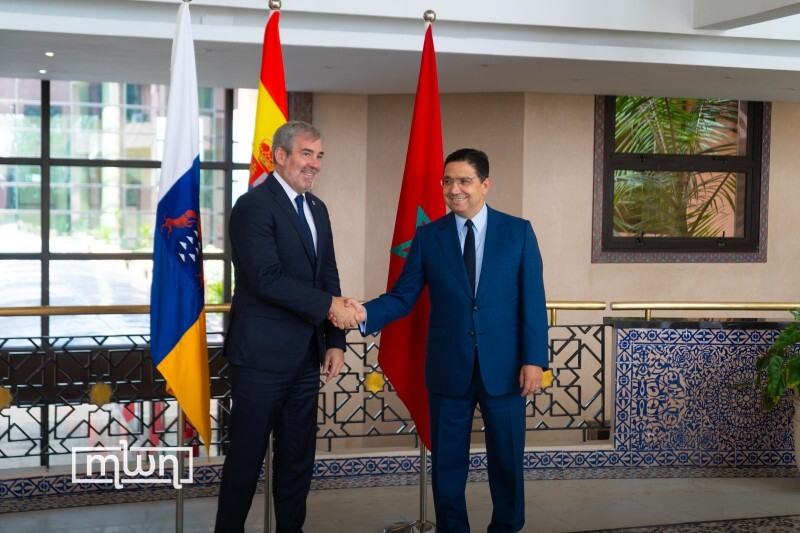Doha - Fernando Clavijo, President of the Canary Islands, has reiterated his government’s alignment with Spain’s policy supporting Morocco’s proposed Autonomy Plan for Western Sahara.
Clavijo emphasized this position in response to criticism from Luis Campos, spokesperson of Nueva Canarias-Bloque Canarista (NC-BC), during a session of the regional Parliament on Tuesday.
Campos accused Clavijo of “historical betrayal” of the Sahrawi people, referring to statements made by the Canary Islands president during a recent visit to Morocco on October 8.
In Rabat, Clavijo had declared that his government fully assumed the Spanish government’s policy regarding Western Sahara.
Responding to Campos, President Clavijo stressed that the autonomous government does not have jurisdiction over foreign policy matters and must adhere to the decisions made by the Spanish government.
He reproached Campos for using “grandiloquent” rhetoric in Parliament, pointing out that when Román Rodríguez, leader of Campos’ party, was president of the Canary Islands, he also expressed support for the central government’s position on the Polisario Front during a visit to Morocco.
Clavijo underscored that in a democratic country, there are rules and regulations to be followed, and each entity has its own prerogatives.
The Canary Islands government is obligated to respect the legal framework that defines Spanish foreign policy
The president’s reaffirmation of support for Morocco’s Autonomy Plan comes ahead of a planned visit to Morocco this week, where he will lead a delegation of over 30 scientists and entrepreneurs from the Canary Islands.
The visit aims to forge new collaboration agreements with Moroccan academic institutions, particularly the Mohammed VI Polytechnic University (UM6P), to deepen cooperation with countries in West Africa.
The Canary Islands government seeks to strengthen its development cooperation policies with neighboring countries to help alleviate the migratory pressures affecting the archipelago.
As of October 15, 32,878 people have arrived irregularly on the Canary Islands’ coasts, accounting for 72.8% of the irregular migration into Spain.
Clavijo’s visit to Morocco comes amid a humanitarian crisis in the Canary Islands, with the archipelago singlehandedly managing the care of thousands of unaccompanied foreign minors.
Government spokesperson Alfonso Cabello emphasized that the Canary Islands remain alone in this situation, with no response from the Spanish government, the PSOE, or the PP regarding a possible reform of the Immigration Law to allow for the mandatory distribution of these minors.
The Canary Islands are expected to allocate €180 million by the end of the year to address this humanitarian emergency.
Clavijo emphasized this position in response to criticism from Luis Campos, spokesperson of Nueva Canarias-Bloque Canarista (NC-BC), during a session of the regional Parliament on Tuesday.
Campos accused Clavijo of “historical betrayal” of the Sahrawi people, referring to statements made by the Canary Islands president during a recent visit to Morocco on October 8.
In Rabat, Clavijo had declared that his government fully assumed the Spanish government’s policy regarding Western Sahara.
Responding to Campos, President Clavijo stressed that the autonomous government does not have jurisdiction over foreign policy matters and must adhere to the decisions made by the Spanish government.
He reproached Campos for using “grandiloquent” rhetoric in Parliament, pointing out that when Román Rodríguez, leader of Campos’ party, was president of the Canary Islands, he also expressed support for the central government’s position on the Polisario Front during a visit to Morocco.
Clavijo underscored that in a democratic country, there are rules and regulations to be followed, and each entity has its own prerogatives.
The Canary Islands government is obligated to respect the legal framework that defines Spanish foreign policy
The president’s reaffirmation of support for Morocco’s Autonomy Plan comes ahead of a planned visit to Morocco this week, where he will lead a delegation of over 30 scientists and entrepreneurs from the Canary Islands.
The visit aims to forge new collaboration agreements with Moroccan academic institutions, particularly the Mohammed VI Polytechnic University (UM6P), to deepen cooperation with countries in West Africa.
The Canary Islands government seeks to strengthen its development cooperation policies with neighboring countries to help alleviate the migratory pressures affecting the archipelago.
As of October 15, 32,878 people have arrived irregularly on the Canary Islands’ coasts, accounting for 72.8% of the irregular migration into Spain.
Clavijo’s visit to Morocco comes amid a humanitarian crisis in the Canary Islands, with the archipelago singlehandedly managing the care of thousands of unaccompanied foreign minors.
Government spokesperson Alfonso Cabello emphasized that the Canary Islands remain alone in this situation, with no response from the Spanish government, the PSOE, or the PP regarding a possible reform of the Immigration Law to allow for the mandatory distribution of these minors.
The Canary Islands are expected to allocate €180 million by the end of the year to address this humanitarian emergency.

